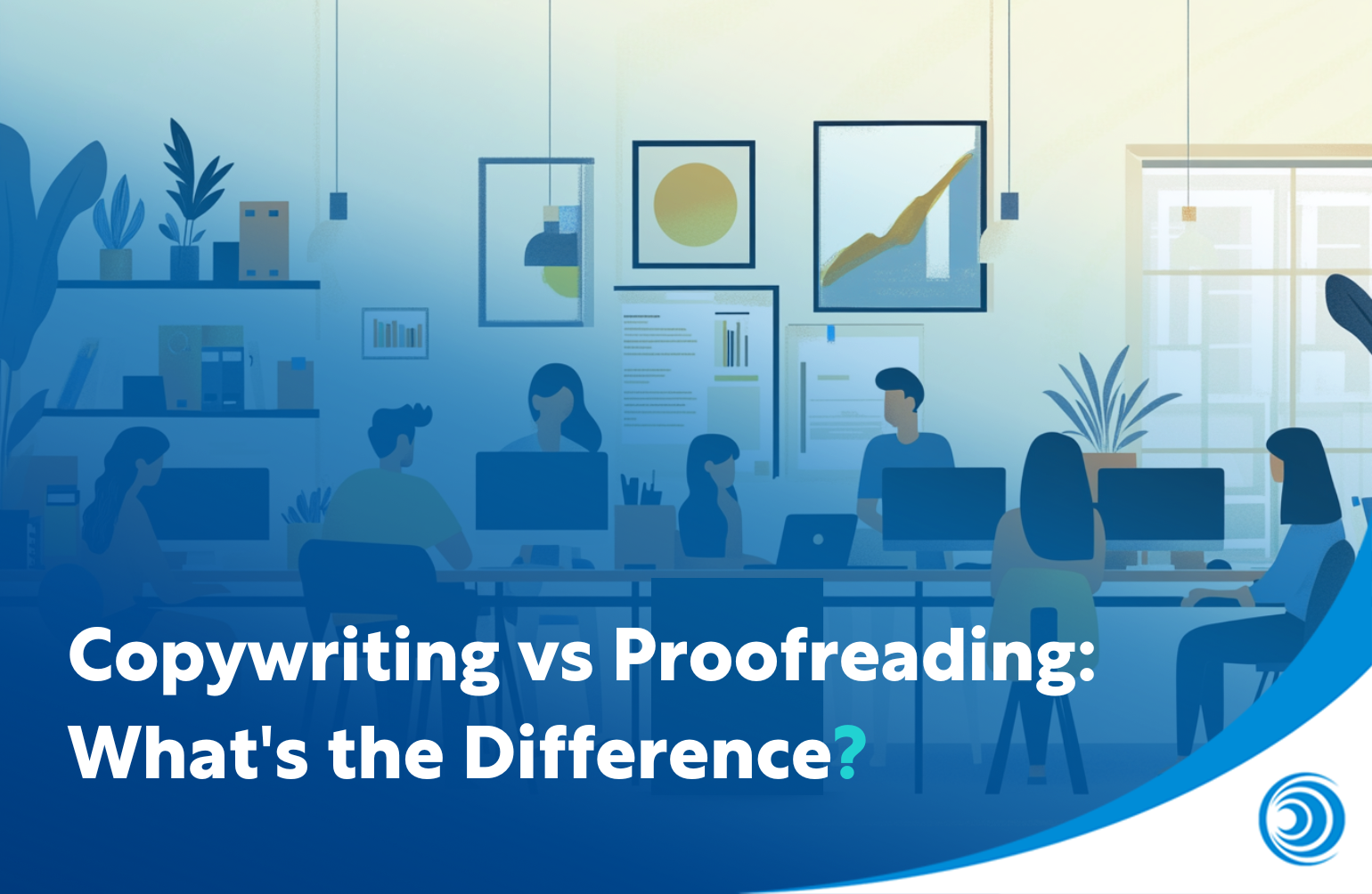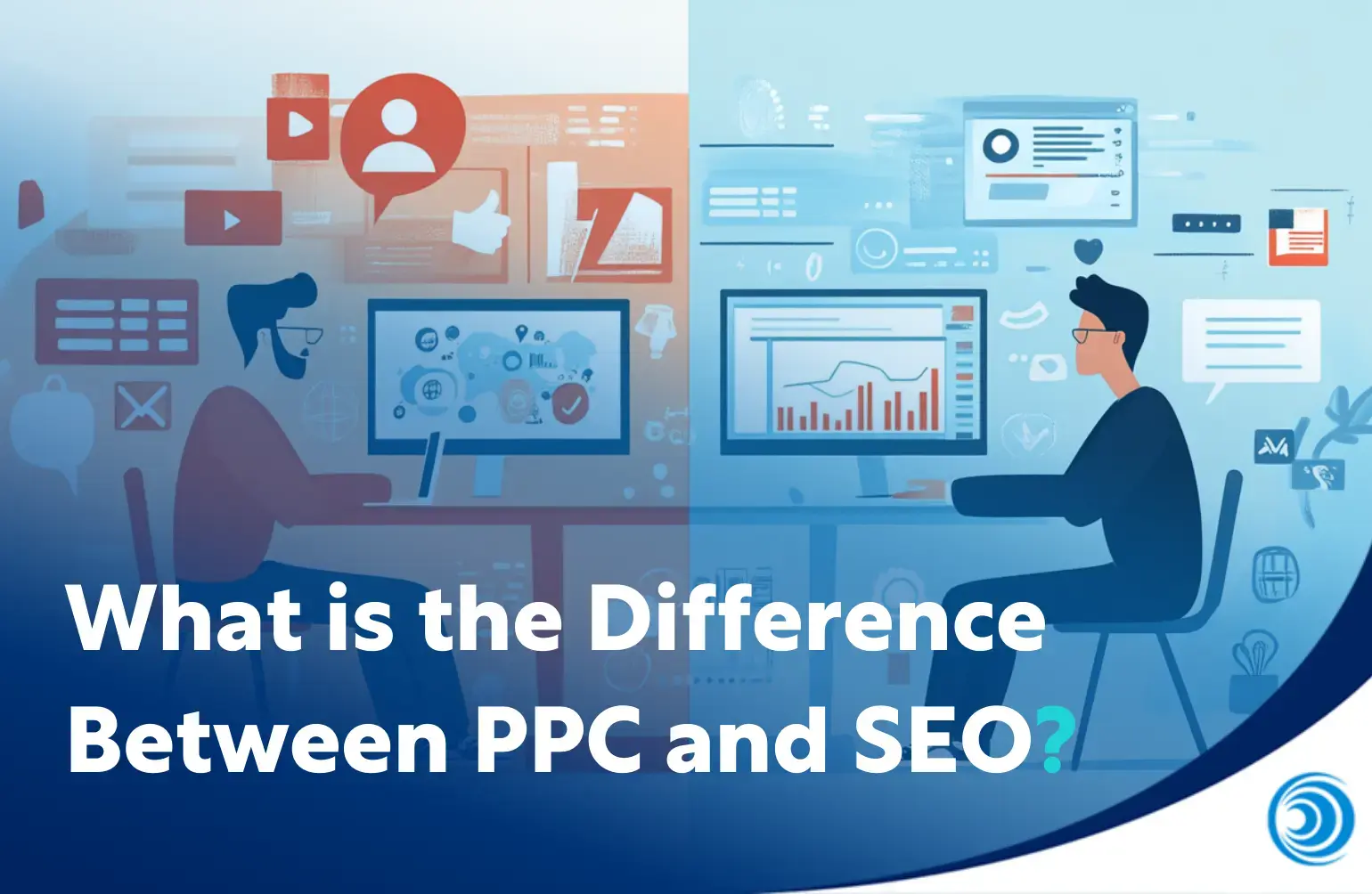
Copywriting vs Proofreading: What's the Difference?
Playwright Tom Stoppard once wrote:
"Words are sacred. They deserve respect. If you get the right ones, in the right order, you can nudge the world a little."
We can apply this principle to writing in marketing too.
When crafting a professional piece of content, Copywriting and proofreading are two of the most important aspects of the writing process.
This article explores what they both are, as well as taking a look at their key differences.
What is copywriting?
Copywriting is that art of writing text that motivates, persuades, or inspires the intended audience to take a specific action. These actions could be anything from making a purchase to signing up for a free trial.
Copywriting has a rich history in marketing. Over the years, it has developed and changed in many ways.
Today, it includes (but is not limited to) writing copy for:
-
Website copy
-
Landing pages
-
Blogs
-
Emails
-
e-Books
-
White papers
It can often be industry or category specific. For instance, business-to-consumer (B2C) copywriting and business-to-business (B2B) copywriting are often approached very differently by writers, as B2C is directed to the individual consumer whereas B2B has to engage with an entire business.
Copywriting should not be confused with content writing, which has more of a focus on informing, educating, and entertaining readers rather than inspiring them to take action.
What does a copywriter do?

A copywriter is a type of marketeer, who's responsible for creating persuasive and engaging written content for a variety of mediums.
They use their creative and linguistic expertise to convey relevant information and evoke emotions, all whilst maintaining a consistent brand tone of voice.
An example of a famous copywriter
The American John Emory Powers was long considered 'advertising's most influential copywriter' and the first contemporary professional copywriter.
He was renowned for his straightforward and unadorned writing style. This can be seen in his comments on copywriting:
"The commonplace is the proper level for writing in business, where the first virtue is plainness, 'fine writing' is not only intellectual, it is offensive."
The relevance of 'the commonplace' has endured today, over 150 years later. The principle remains effective across diverse advertising platforms, be it digital or traditional print media.
What makes successful copywriting?
Successful copywriting achieves a business's pre-determined goals, whatever they may be.
A good copywriter needs to be both a good researcher and psychologist. The compelling text they write must be based on their in-depth understanding of the target audience's likes, dislikes and pain points.
Like art and the other many forms of creative expression, there isn't an objective way to measure its success. However, analytics can be used to measure how successful an article is after it has been published.
What's the difference between copywriting and copy editing?
Copy editing is similar to, but not the same as, copywriting. It comes after the writing stage and it is focused on editing rather than creating copy.
A good copy editor will assess the tone and flow of the copy, ensuring there are no inconsistencies and remains in line with both editorial and brand guidelines. Editors must also check that the copy is consistent with wider internal and external campaigns.
What is proofreading?
When we hear the word 'proofreading', we often think of just quickly skimming over a piece of work before hitting send or publishing it. But in marketing, a lot more goes into it.
Proofreading is the act of reviewing copy to spot any errors before it is published. This ranges from spotting typos and punctuation errors to checking that everything is grammatically correct.
It is typically the final step in the editing process and is crucial when producing high-quality copy.
Before we experienced mass digitalisation in marketing, 'proof' meant the first draft of copy that was then put into a final format. Today, it's the process of reviewing all types of written work, whether that be content writing, emails, or presentations.
What does a proofreader do?

A proofreader reviews written pieces to catch errors missed in the mechanical editing process. This includes checking for typos, spelling mistakes, grammar and punctuation.
They also check for formatting errors in the structure such as font size, lengthy paragraphs, incorrect subheadings and the text within images. A proofreader will look at the overall flow and consistency of copy, making sure it is easy for the reader to digest.
This process does not involve substantive editing. Major changes to the structure, like fact checking and rewording phrases/sentences, should not be done in the proofreading stage.
Example of a famous proofreader
18th-century English writer and lexicographer, Samuel Johnson, is best remembered for his contributions to the English language, particularly "A Dictionary of the English Language".
He is also known for his proofreading skills. Johnson's dedication to defining and documenting the English language helped standardise spelling and grammar, making him an early pioneer in the field.
What skills are essential for proofreading?
A talented proofreader needs a few key skills in order to do their job well.
One that may seem obvious is a strong attention to detail. The whole point of proofreading is to identify errors that have managed to slip through the cracks of all the other stages of editing. The final piece of text presented by a proofreader must be spotless.
Editorial knowledge is another essential skill needed. A proofreader should be knowledgeable of various editorial styles such as Chicago or APA, maintaining the chosen requirements through the piece and easily being able to pick out any inconsistencies.
What are the differences between copywriting and proofreading?
Although copywriting and proofreading come hand in hand, they are separate processes.
1. Goals
Copywriting and proofreading have different goals.
Copywriters are focused on the bigger picture; working with a view of meeting a brief and achieving specific results.
Freelance proofreaders, on the other hand, focus on the copy at a text-based level. They are not concerned with the wider goals of the text - their aim is to find errors, not copyediting.
2. Measuring success
Proofreading's success (or failure) is extremely easy to measure: if the text is error free, the task has been completed successfully.
Unlike copywriting, where the success of a copywriter's work is more difficult to measure.
At first glance, it can be judged by how much input a copy editor needs to make. Generally speaking, the less changes copy editors need to make, the better the copywriter.
After the written work has been put in a publication, different metrics tracking engagement and conversions can be used to compare it to other campaigns and its original goals.
3. Required skillsets
Despite both having heavy involvement in the overall copywriting process, each requires different skillsets.
Copywriting requires skills such as creative thinking, market research, writing and the ability to understand the psychographics and demographics of target audiences.
However, proofreading requires a strong knowledge of editorial style guides and the ability to interpret them, an excellent grasp of spelling and grammar, and attention to detail.
Conclusion
Understanding the nuances of copywriting and proofreading reveals their indispensable contributions to the overall writing process.
Whilst copywriting crafts persuasive and engaging narratives that inspire action, proofreading ensures that the copy is polished and free from error. They work together to ensure that creativity meets precision.
By blending the artistry of compelling language with a meticulous attention to detail, marketeers can deliver key messages that resonate with their target audience.
Professional copywriting and proofreading skills are something that are often mistakenly overlooked in favour of time, price or volume. Don't make the mistake of delivering below par content. Hiring a professional agency to do your copywriting can free up a lot of time and ensure you deliver high quality pieces. Let's have a chat to see how we can help!



